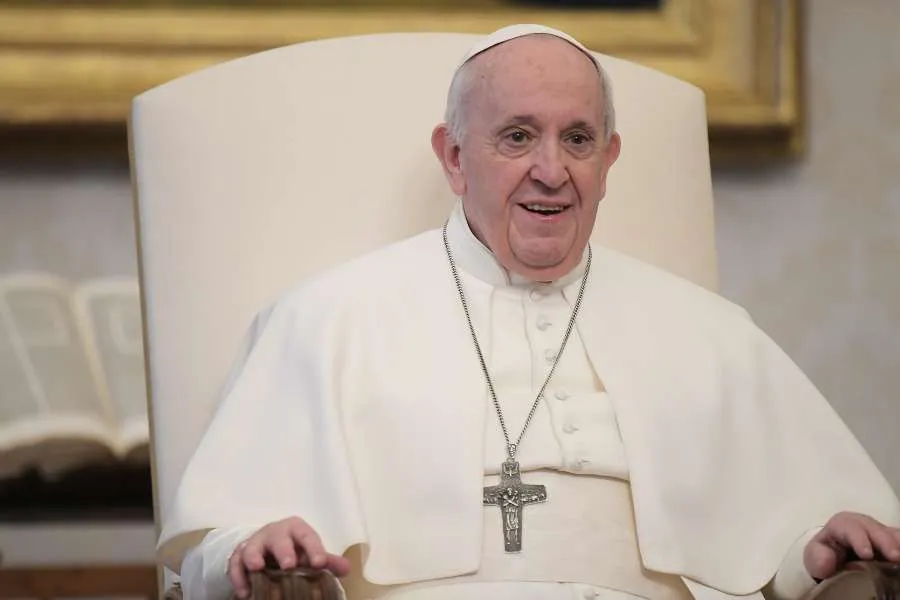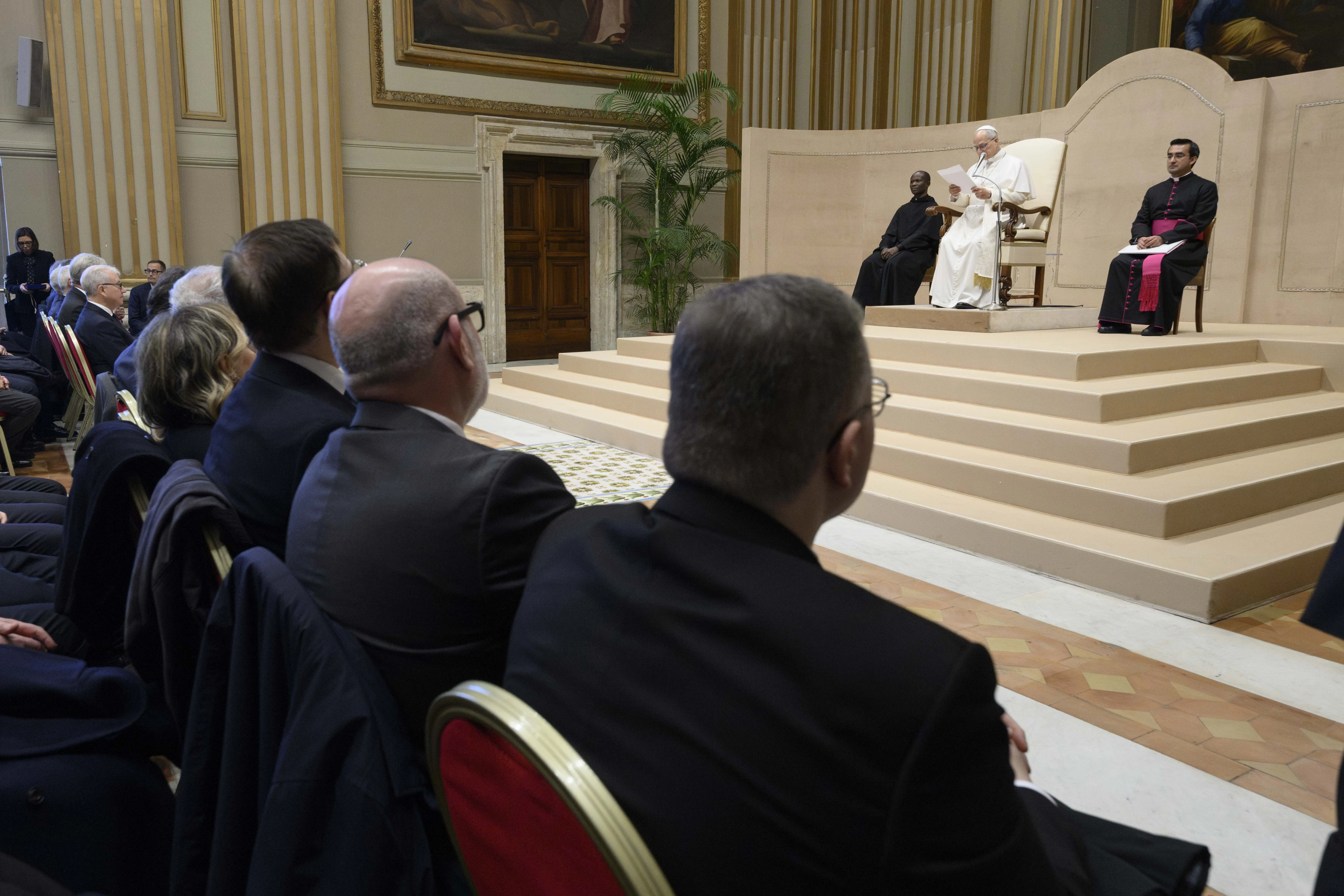“In Christian life, the corporeal and material sphere may not be dispensed with, because in Jesus Christ it became the way of salvation … Therefore, there is no Christian spirituality that is not rooted in the celebration of the holy mysteries,” the pope said, coughing as he spoke.
He then quoted the Catechism, which states: “The mission of Christ and of the Holy Spirit proclaims, makes present, and communicates the mystery of salvation, which is continued in the heart that prays.”
In the history of Christianity, there has often been a temptation to emphasize one’s individual prayer over the spiritual importance of public liturgical rites, the pope explained.
“Often this tendency claimed the presumed greater purity of a religiosity that did not depend on external ceremonies, considered a useless or harmful burden,” he said.
However, the liturgy is the foundational act of the Christian experience, he said. “It is an event … it is presence, it is an encounter. It is an encounter with Christ.”
“Christ makes himself present in the Holy Spirit through the sacramental signs: hence the need for us Christians to participate in the divine mysteries,” Pope Francis said.

When the first Christians worshiped, they did so by “actualizing the gestures and words of Jesus with the light and power of the Holy Spirit.”
“St. Paul writes in the Letter to the Romans: ‘I therefore urge you, brothers, by the mercy of God, to offer your bodies as a living sacrifice, holy and acceptable to God; this is your spiritual worship.’ Life is called to become worship of God, but this cannot happen without prayer, especially liturgical prayer,” he said.
“This thought helps us all when we go to Mass: I go to pray in community, I go to pray with Christ who is present. When we go to the celebration of a Baptism, for example, it is Christ there, present, who baptizes. ‘But, Father, this is an idea, a way of speaking?’ No, it is not a way of speaking. Christ is present and in the liturgy, you pray with Christ who is next to you.”








